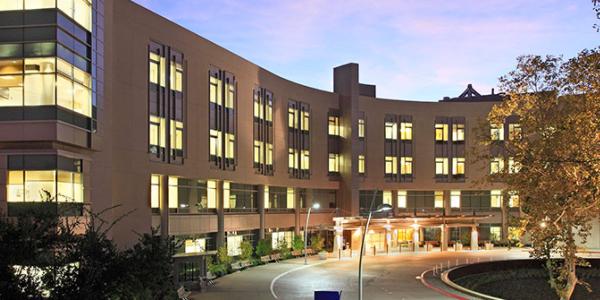


Mountain View, CA - February 9, 2009 - El Camino Hospital in Mountain View has launched an after-school program for teenage youths who are experiencing significant anxiety, depression, or other symptoms related to a mental health condition. Called ASPIRE (After-School Program Interventions and Resiliency Education), the group-based acute program's primary goal is to help adolescents achieve emotional wellness and reduce risk for unhealthy behaviors.
"This program is designed for adolescents who need stronger abilities to achieve the necessary emotional balance to cope with stress," said Michael Fitzgerald, director of Behavioral Health Services at El Camino Hospital. "We work with them to develop the necessary skills to help regulate emotions."
The ASPIRE program isn't intended to replace an adolescent's existing therapist or psychiatrist, but to provide an intensive, six-week, 4-day-a-week treatment program that helps break through existing habit patterns and teach new coping skills--leaving the teen better equipped to benefit when he or she returns to regular therapy. The program takes a holistic view of the young person's life situation, and encourages participation and education for the whole family. Parents of participating adolescents attend a group session weekly, and also participate in family therapy. This helps parents and teens develop healthier communications and negotiating techniques.
"Parent involvement is necessary to ensure that the changes extend to the whole family," says Dr. Jennifer Zumarraga, a child-adolescent psychiatrist who is the medical director for ASPIRE. "I believe ASPIRE is a well rounded, essential program which will have a positive impact on many of our youth."
ASPIRE is based on "dialectical behavior therapy" (DBT), which combines cognitive behavioral techniques for emotion regulation with concepts of mindful awareness, distress tolerance, and acceptance. DBT has been proven effective in treating patients with varied symptoms and behaviors associated with a spectrum of mood disorders, as well as Borderline Personality Disorder.
"An example of an adolescent who would fit the ASPIRE program is one who experiences a profound sense of failure, and doesn't benefit as well from other services," Fitzgerald said. "Among other things, our treatment plan uses distraction techniques to combat distress, helping participants adapt coping behaviors that can become automatic over time. Participants also learn to better express their feelings and validate their own strengths through mindfulness, expressive arts therapy, and individual counseling sessions." Following the program, the teenager will typically return to their regular outpatient provider or school counselor, but with improved strengths.
"Sometimes parents are unaware of how their teens are reacting to their verbal and nonverbal cues," Fitzgerald said. "A hallmark characteristic of adolescents experiencing significant anxiety and depression is that they don't feel validated by their families. They crave acceptance. We help parents learn to avoid phrases that reinforce negative self images and teach both parents and teens how to communicate more positively."
"These are often the adolescents who fall through the cracks," Fitzgerald added. "They're typically not committing crimes or heavily into drugs, so their problems might not raise red flags. But depression in teenagers is a serious issue; suicide is the third leading cause of death in young people ages 15 to 24 and the fourth leading cause from age 10 to 14. We created ASPIRE to offer families an affordable option to address this problem."
Medications are considered more of an adjunct than a focus, according to Dr. Zumarraga. "If medications are indicated or were initiated elsewhere, our team is able to observe the therapeutic benefit and help quickly if there are any untoward side effects," she noted.
Fitzgerald said that ASPIRE was deliberately designed as an after-school program because that is a high-risk time period for teens, when lack of supervision and support combined with exhaustion and mood instability from a long school day may lead to engaging in problem behaviors.
ASPIRE qualifies for coverage from most insurers--some payors cover 100 percent of the program costs. Others may require a co-pay (averaging about $50/day). For more program information or to make an appointment for an initial, confidential consultation, please call 650-962-5855.